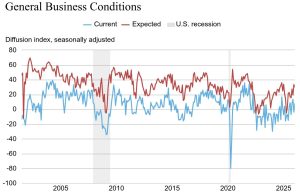U.S. Senator Kirsten Gillibrand (D–N.Y.) is backing a bill that she contends would significantly reduce the cost of prescription drugs for seniors. Gillibrand, the top-ranking Democrat on the Senate Aging Committee, discussed the Strengthening Medicare and Reducing Taxpayer (SMART) Prices Act during a June 5 virtual press conference. U.S. Senator Amy Klobuchar (D–Minn.) is the […]
Already an Subcriber? Log in
Get Instant Access to This Article
Become a Central New York Business Journal subscriber and get immediate access to all of our subscriber-only content and much more.
- Critical Central New York business news and analysis updated daily.
- Immediate access to all subscriber-only content on our website.
- Get a year's worth of the Print Edition of The Central New York Business Journal.
- Special Feature Publications such as the Book of Lists and Revitalize Greater Binghamton, Mohawk Valley, and Syracuse Magazines
Click here to purchase a paywall bypass link for this article.
U.S. Senator Kirsten Gillibrand (D–N.Y.) is backing a bill that she contends would significantly reduce the cost of prescription drugs for seniors.
Gillibrand, the top-ranking Democrat on the Senate Aging Committee, discussed the Strengthening Medicare and Reducing Taxpayer (SMART) Prices Act during a June 5 virtual press conference.
U.S. Senator Amy Klobuchar (D–Minn.) is the bill’s sponsor and first introduced the measure in April 2023, per the bill’s page on website Congress.gov.
Specifically, the SMART Prices Act would increase the number of drugs and biologics — medications like insulin that come from living sources — that the U.S. Department of Health and Human Services (HHS) must negotiate to a minimum of 50 drugs in 2028 and for each subsequent year.
The proposal would also increase the amount of savings that Medicare can negotiate off the list price for each drug by adjusting the maximum fair price (MFP) thresholds to match the MFP thresholds that the U.S. Department of Veterans Affairs, U.S. Department of Defense, and the U.S. Public Health Service use in their price negotiations for prescription drugs.
The bill would also shorten the length of time that drugs and biologics need to be on the market following U.S. Food & Drug Administration (FDA) approval before becoming eligible for negotiation.
The bill would lower the cost of some of the most expensive and commonly used prescription medications by enhancing HHS’ ability to negotiate directly with pharmaceutical companies on the price of certain prescription drugs covered under Medicare Part D.
That would lower costs for people with Medicare while simultaneously reducing drug spending by the federal government, Gillibrand’s office said.
“Even with Medicare, the cost of prescription drugs can be astronomical; as a result, many seniors are forced to skip doses, cut pills in half, or otherwise alter their treatment in an attempt to save money. That is unacceptable,” Gillibrand said in a news release about the bill. “In 2022, we made major progress in reducing the cost of life-saving medications by passing legislation that allowed Medicare to negotiate the price of certain prescription drugs, including those that treat diabetes, heart failure, kidney disease, and blood cancer, among other common conditions. This bill expands on that victory and makes dozens more drugs subject to price negotiations. I look forward to getting it passed.”



